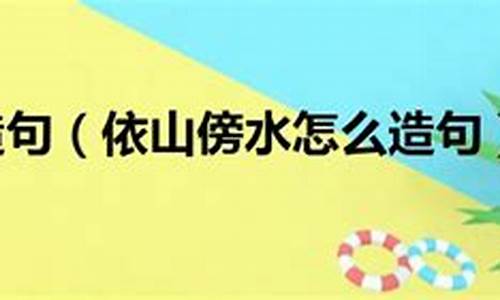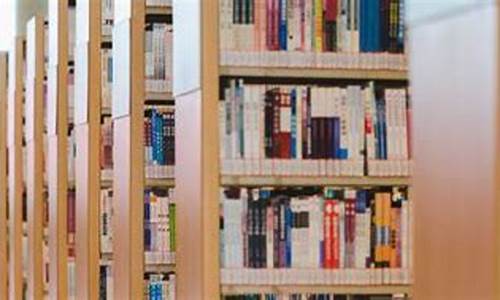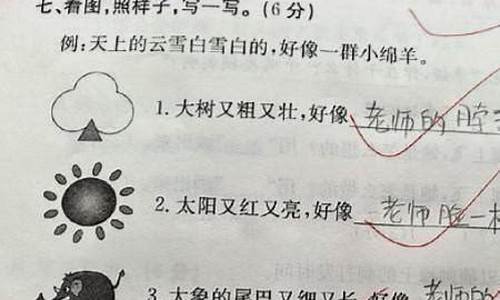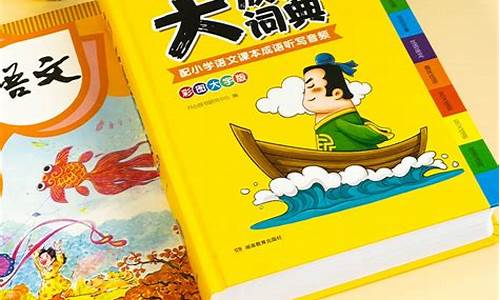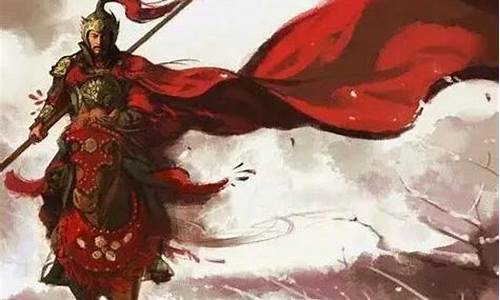您现在的位置是: 首页 > 成语教学 成语教学
猜灯谜的英文怎么说-猜灯谜的英文
tamoadmin 2024-10-15 人已围观
简介中国的节日有很多,每个节日都有其独特的意义和庆祝方式。下面是一些常见的中国节日及其英文表达:1. 春节(Spring Festival):中国最重要的传统节日,也是农历新年。人们会进行各种庆祝活动,如贴春联、放鞭炮、舞龙舞狮等。2. 元宵节(Lantern Festival):农历正月十五,是春节的最后一天。人们会点亮彩灯、放天灯、猜灯谜等。3. 清明节(Tomb-sweeping Day):每年

中国的节日有很多,每个节日都有其独特的意义和庆祝方式。下面是一些常见的中国节日及其英文表达:
1. 春节(Spring Festival):中国最重要的传统节日,也是农历新年。人们会进行各种庆祝活动,如贴春联、放鞭炮、舞龙舞狮等。
2. 元宵节(Lantern Festival):农历正月十五,是春节的最后一天。人们会点亮彩灯、放天灯、猜灯谜等。
3. 清明节(Tomb-sweeping Day):每年4月4日或4月5日,是祭祖扫墓的日子。人们会去祭拜祖先,扫墓并祭奠逝去的亲人。
4. 端午节(Dragon Boat Festival):农历五月初五,纪念古代爱国诗人屈原。人们会划龙舟、吃粽子、挂艾草等。
5. 中秋节(Mid-Autumn Festival):农历八月十五,庆祝丰收和家庭团聚。人们会赏月、吃月饼、玩花灯等。
6. 国庆节(National Day):每年10月1日,庆祝中华人民共和国的成立。人们会举行盛大的阅兵仪式、焰火表演等。
7. 重阳节(Double Ninth Festival):农历九月初九,是老人节。人们会登高、赏菊、喝菊花酒等。
8. 春分节(Spring Equinox Festival):每年春分时节,是农历二十四节气之一。人们会祭祖、扫墓、踏青等。
以上只是一些中国节日的英文表达,每个节日都有其独特的庆祝方式和文化内涵。希望这些信息对你有所帮助!
新年习俗英文简介及中文翻译
Yuanxiao is the special food for the Lantern Festival. It is believed that Yuanxiao is named after a palace maid, Yuanxiao, of Emperor Wu Di of the Han Dynasty. Yuanxiao is a kind of sweet dumpling, which is made with sticky rice flour filled with sweet stuffing. And the Festival is named after the famous dumpling. It is very easy to cook - simply dump them in a pot of boiling water for a few minutes - and eaten as a dessert.
Guessing lantern riddles is an essential part of the Festival. Lantern owners write riddles on a piece of paper and post them on the lanterns. If visitors have solutions to the riddles, they can pull the paper out and go to the lantern owners to check their answer. If they are right, they will get a little gift. The activity emerged during people's enjoyment of lanterns in the Song Dynasty (960-1279).?
As riddle guessing is interesting and full of wisdom, it has become popular among all social strata.
翻译:元宵是元宵节的特色食品。据说,元宵是因汉武帝时期的一位名叫元宵的宫女而得名。元宵是一种带馅儿的甜食,是由糯米粉加上甜的馅料制成。元宵节就是因此食品得名。元宵的烹制方法非常简单,将元宵倒入装满沸水的锅中煮几分钟就可以了。
猜灯谜也是元宵节活动的一个基本组成部分。灯笼的所有者将谜语写在一张纸条上,然后将纸条展示在灯笼上。如果赏灯者猜出谜语,就将纸条取出,然后找灯笼所有者确认答案。答对的话,他们就可以领取一份小礼品。这个活动起源于宋朝(960——1279)。
猜灯谜活动极富情趣和智慧,因此在全社会广受欢迎。
元宵英语怎么说?
春节习俗英文介绍:
1、放生祈福
The eighth day is believed to be the birthday of millet, an important crop in ancient China.
初八被认为是中国古代一种重要粮食——谷的生日。
According to folk proverbs, if this day is bright and clear the year will be a harvest year; however, if this day is cloudy or even rainy, the year will suffer from poor harvest.
根据民间俗语,这一天如果晴朗明亮就预示着大丰收,而如果多云甚至下雨就预示着今年会歉收。
Meanwhile, people also set free captive animals on this day, with a blessing for all living beings to flourish in the New Year.
此外,这一天人们还会放生动物,祝福新的一年里所有生物都繁荣兴旺,生生不息。
2、Eating Yuanxiao吃元宵
Yuanxiao is the special food for the Lantern Festival. It is believed that Yuanxiao is named after a palace maid, Yuanxiao, of Emperor Wu Di of the Han Dynasty. Yuanxiao is a kind of sweet dumpling, which is made with sticky rice flour filled with sweet stuffing. And the Festival is named after the famous dumpling. It is very easy to cook - simply dump them in a pot of boiling water for a few minutes - and eaten as a dessert.
元宵是元宵节的特色食品。据说,元宵是因汉武帝时期的一位名叫元宵的宫女而得名。元宵是一种带馅儿的甜食,是由糯米粉加上甜的馅料制成。元宵节就是因此食品得名。元宵的烹制方法非常简单,将元宵倒入装满沸水的锅中煮几分钟就可以了。
3、Guessing lantern riddles猜灯谜
"Guessing lantern riddles"is an essential part of the Festival. Lantern owners write riddles on a piece of paper and post them on the lanterns. If visitors have solutions to the riddles, they can pull the paper out and go to the lantern owners to check their answer. If they are right, they will get a little gift. The activity emerged during people's enjoyment of lanterns in the Song Dynasty (960-1279). As riddle guessing is interesting and full of wisdom, it has become popular among all social strata.
猜灯谜也是元宵节活动的一个基本组成部分。灯笼的所有者将谜语写在一张纸条上,然后将纸条展示在灯笼上。如果赏灯者猜出谜语,就将纸条取出,然后找灯笼所有者确认答案。打对的话,他们就可以领取一份小礼品。这个活动起源于宋朝(960——1279)。猜灯谜活动极富情趣和智慧,因此在全社会广受欢迎。
4、Watch fireworks 看烟火
In the daytime of the Festival, performances such as a dragon lantern dance, a lion dance, a land boat dance, a yangge dance, walking on stilts and beating drums while dancing will be staged. On the night, except for magnificent lanterns, fireworks form a beautiful scene. Most families spare some fireworks from the Spring Festival and let them off in the Lantern Festival. Some local s will even organize a fireworks party. On the night when the first full moon enters the New Year, people become really intoxicated by the imposing fireworks and bright moon in the sky.
元宵节的白天会有舞龙舞狮、划旱船、扭秧歌、踩高跷。而在晚上,除了各种大型灯会,灿烂的焰火也是一幅美丽的画卷。很多家庭在春节时会留下一部分烟花等着元宵节放。有的地方政府甚至会组织焰火晚会。当新年的第一轮圆月升上夜空时,人们都会因燃放的烟火和空中的明月而兴奋。
元宵节英语手抄报内容短语
元宵节快乐英文:Happy Lantern Festival、The Lantern Festival
双语例句:
一、祝愿你和家人元宵节快乐!
Wish?you?and?your?family?a?happy?Lantern?Festival!
二、祝每一个人都元宵节快乐!
Happy?The?Lantern?Festival?to?every?one!?
正月是农历的元月,古人称夜为“宵”,所以称正月十五为元宵节。元宵节又称为“上元节”。按中国民间的传统,在这天人们要点彩灯、猜灯谜、吃元宵。
一、Eating Yuanxiao 吃元宵
民间过元宵节都会吃元宵。元宵由糯米制成,或实心,或带馅,馅有豆沙、白糖、山楂、各类果料等。食用时煮、炸、蒸皆可。起初,人们把这种食物叫作“浮圆子”,后来又叫汤团或汤圆,这些名称与“团圆”字音相近,取团圆之意,象征全家人团团圆圆和睦幸福。
二、Guessing lantern riddles 猜灯谜
猜灯谜也是元宵节活动的一个基本组成部分。灯笼的所有者将谜语写在一张纸条上,然后将纸条展示在灯笼上。如果赏灯者猜出谜语,就将纸条取出,然后找灯笼所有者确认答案。答对的话,可以领取一份小礼品。这个活动起源于宋朝(960—1279)。
三、英语灯谜
1、What letter is an animal?
哪个字母是一个动物?
2、What fruit is never found singly?
什么水果永远都不会是单数?
各种中国传统节日的英文介绍
元宵节英语手抄报内容可以体现作者的英文水平和历史认识,我整理了“元宵节英语手抄报内容短语”仅供参考,希望能帮助到大家!
元宵节英语手抄报内容短语一
元宵节英语手抄报内容短语二
元宵节英语手抄报内容短语三
元宵节英语手抄报内容短语四
元宵节英语手抄报内容短语五
1、Eating Yuanxiao 吃元宵
Yuanxiao is the special food for the Lantern Festival. It is believed that
Yuanxiao is named after a palace maid, Yuanxiao, of Emperor Wu Di of the Han
Dynasty. Yuanxiao is a kind of sweet dumpling, which is made with sticky rice
flour filled with sweet stuffing. And the Festival is named after the famous
dumpling. It is very easy to cook - simply dump them in a pot of boiling water
for a few minutes - and eaten as a desert.
元宵是元宵节的特色食品。据说,元宵是因汉武帝时期的一位名叫元宵的宫女而得名。元宵是一种带馅儿的甜食,是由糯米粉加上甜的馅料制成。元宵节就是因此食品得名。元宵的烹制方法非常简单,将元宵倒入装满沸水的锅中煮几分钟就可以了。
2、Guessing lantern riddles 猜灯谜
"Guessing lantern riddles"is an essential part of the Festival. Lantern owners
write riddles on a piece of paper and post them on the lanterns. If visitors
have solutions to the riddles, they can pull the paper out and go to the lantern
owners to check their answer. If they are right, they will get a little gift.
The activity emerged during people's enjoyment of lanterns in the Song Dynasty
(960-1279). As riddle guessing is interesting and full of wisdom, it has become
popular among all social strata.
猜灯谜也是元宵节活动的一个基本组成部分。灯笼的所有者将谜语写在一张纸条上,然后将纸条展示在灯笼上。如果赏灯者猜出谜语,就将纸条取出,然后找灯笼所有者确认答案。打对的话,他们就可以领取一份小礼品。这个活动起源于宋朝(960——1279)。猜灯谜活动极富情趣和智慧,因此在全社会广受欢迎。
3、Watch fireworks 看烟火
In the daytime of the Festival, performances such as a dragon lantern dance, a
lion dance, a land boat dance, a yangge dance, walking on stilts and beating
drums while dancing will be staged. On the night, except for magnificent
lanterns, fireworks form a beautiful scene. Most families spare some fireworks
from the Spring Festival and let them off in the Lantern Festival. Some local
s will even organize a fireworks party. On the night when the first
full moon enters the New Year, people become really intoxicated by the imposing
fireworks and bright moon in the sky.
元宵节的白天会有舞龙舞狮、划旱船、扭秧歌、踩高跷。而在晚上,除了各种大型灯会,灿烂的焰火也是一幅美丽的画卷。很多家庭在春节时会留下一部分烟花等着元宵节放。有的地方政府甚至会组织焰火晚会。当新年的第一轮圆月升上夜空时,人们都会因燃放的烟火和空中的明月而兴奋。
1、春节(农历一月一日) Spring Festival;Chinese New Year's Day
由来:
Primitive beliefs and sacrificial culture are important factors in the formation of New Year's Day.?
原始信仰和祭祀文化是春节形成的重要因素。
习俗:
such as Lunar New Year's dinner, keeping the age, New Year's money, temple fairs, flower lanterns and other customs.
如团年饭、守岁、压岁钱、庙会、赏花灯等习俗。
2、元宵节(农历一月十五日) Lantern Festival(龙灯节直译)
由来:
The custom of burning lamps on the fifteenth day of the first lunar month is related to the spread of Buddhism to the east.
正月十五燃灯的习俗与佛教东传有关。
习俗:
Lantern Festival mainly includes a series of traditional folk activities,
such as watching lanterns, eating dumplings, guessing lantern riddles and setting off fireworks.
元宵节主要有赏花灯、吃汤圆、猜灯谜、放烟花等一系列传统民俗活动。
3、清明节(公历4月5日前后,农历二月后半月至三月上半月间) Tomb-Sweeping Day
由来:
The Qingming Festival originated from the Spring Festival and the Spring and Autumn Festival in ancient times.
清明节源于上古时代的春祭,春秋二祭,古已有之。
习俗:
Tomb-sweeping, ancestor-sacrificing and outing are common basic etiquette and custom themes.
扫墓祭祖、踏青郊游是共同基本礼俗主题。
4、端午节(农历五月初五) Dragon Boat Festival(龙舟节直译)
由来:
Dragon Boat Festival, with a long history, evolved from the dragon totem worship held in Baiyue in ancient times.
端午节,历史悠久,由上古时代百越举行龙图腾祭祀演变而来。
习俗:
The Dragon Boat picking and rice dumplings are the two main themes of the Dragon Boat Festival.
扒龙舟与食粽子是端午节的两大礼俗主题。
5、中秋节(农历八月十五) Mid-Autumn (Moon)Festival
由来:
The Mid-Autumn Festival originated from the worship of celestial phenomena,
and evolved from the worship of the moon on the autumn evening in ancient times.
中秋节源自天象崇拜,由上古时代秋夕祭月演变而来。
习俗:
offering sacrifices to the moon, enjoying the moon, eating moon cakes,?
playing with lanterns, appreciating osmanthus flowers and drinking osmanthus wine.
中秋节自古便有祭月、赏月、吃月饼、玩花灯、赏桂花、饮桂花酒等民俗
6、重阳节(农历九月九日) Double-ninth Day(重九节直译)
由来:
The origin of Chongyang Festival can be traced back to ancient times. In ancient times,?
there were activities of harvest sacrifice and Mars sacrifice in autumn and autumn.
重阳节的源头,可追溯到上古时代。古时季秋有丰收祭天、祭祀大火星活动。
习俗:
There are customs such as climbing high to pray for blessings, visiting chrysanthemums in autumn, wearing dogwood,?
offering sacrifices to gods and ancestors, and feasting for longevity.
有登高祈福、秋游赏菊、佩插茱萸、祭神祭祖及饮宴求寿等习俗。
百度百科——中国传统节日
